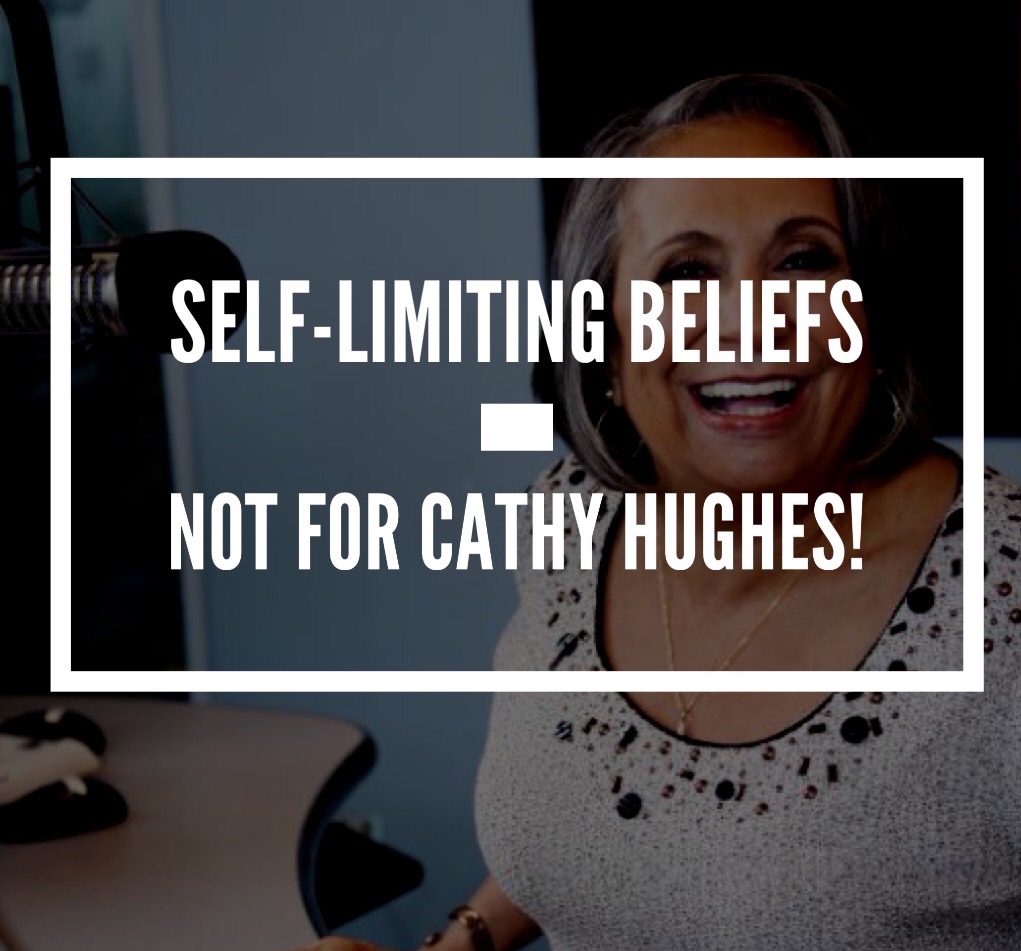One of the biggest obstacles to success is having self-limiting beliefs. I’m definitely a victim to self-limiting thinking. Often I’m caught myself in doubt due to my age, lack of education, my mental health issues, financial situation or whatever else I can find in the dark recesses of my mind.
I came across a wonderful podcast today on How I Built This. This episode featured Cathy Hughes . Cathy is the founder of Radio One. She is now 70 years old and has a net worth of over $500 million.
I won’t go into every detail of Cathy’s story and recommend you listen to the podcast and read Wikipedia. The major points that I took from Cathy’s story is that she had no self-limiting beliefs. She had a goal and had no doubt that she would achieve it.
However, Cathy had several potential obstacles that many would consider insurmountable to achieve even minor success:
- Lived in housing projects as a child
- Was a single mother at 17
- Is an African American woman
- Lived in middle America
- She started her career in the 60’s and 70’s, which I understand was a less enlightened time in the US for African Americans (I’m from Australia, so I wasn’t there to experience it)
Cathy apparently faced discrimination in her early days but again, she maintained focus on her goal and never doubted she would succeed.
Again, I won’t go into her whole story but one story she recounted was approaching financial institutions for a $1 million loan with only $10,000 in the bank. She went to 32 banks before getting the loan. 90% of people would give up after 2 or 3 banks but not Cathy. She said that she believed in the law of averages that every ‘No’ is one step closer to a YES. It is not hard to believe that she would have gone to 100 banks if she had to.
What if we all had the same confidence as Cathy that we would succeed despite self-imposed limits? Very few will achieve the success that Cathy has. Without question though, the person that follows a passionate goal without thought of failure will be far more successful then the one that finds reasons they can’t.




 64. Following the round, Norman quipped that “I’m in awe of myself” as he didn’t miss hit a shot. I recall that this comment was discussed in Australia almost more than his win. It was considered discourteous to the other players and arrogant. I could argue though that he was actually understating his normal ability and he just had a great day.
64. Following the round, Norman quipped that “I’m in awe of myself” as he didn’t miss hit a shot. I recall that this comment was discussed in Australia almost more than his win. It was considered discourteous to the other players and arrogant. I could argue though that he was actually understating his normal ability and he just had a great day. failures of the high-flyers make the press, such as Tiger Wood’s infidelity and Donald Trump’s misguided comments. But it seems that this is more of identifying that everyone can make mistakes rather than wanting them to fail (though maybe with Trump I could be wrong). I doubt I would be wrong in saying that the US would love it if Tiger was the best again.
failures of the high-flyers make the press, such as Tiger Wood’s infidelity and Donald Trump’s misguided comments. But it seems that this is more of identifying that everyone can make mistakes rather than wanting them to fail (though maybe with Trump I could be wrong). I doubt I would be wrong in saying that the US would love it if Tiger was the best again. Thesselonian you’re fighting…he’s the biggest man I’ve ever seen. I wouldn’t want to fight him’. Achilles responds ‘That’s why no-one will remember your name’. Come on Australia, strive for
Thesselonian you’re fighting…he’s the biggest man I’ve ever seen. I wouldn’t want to fight him’. Achilles responds ‘That’s why no-one will remember your name’. Come on Australia, strive for 


